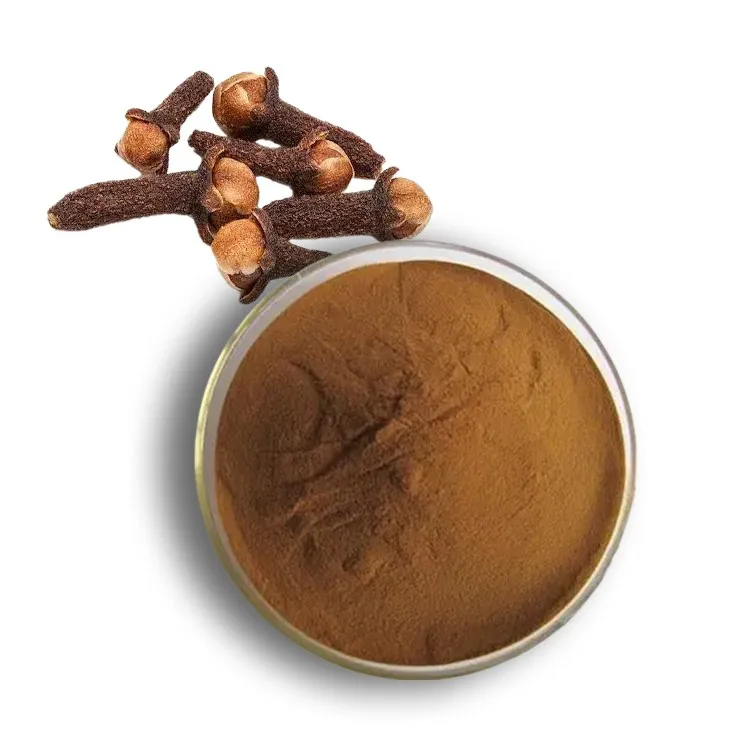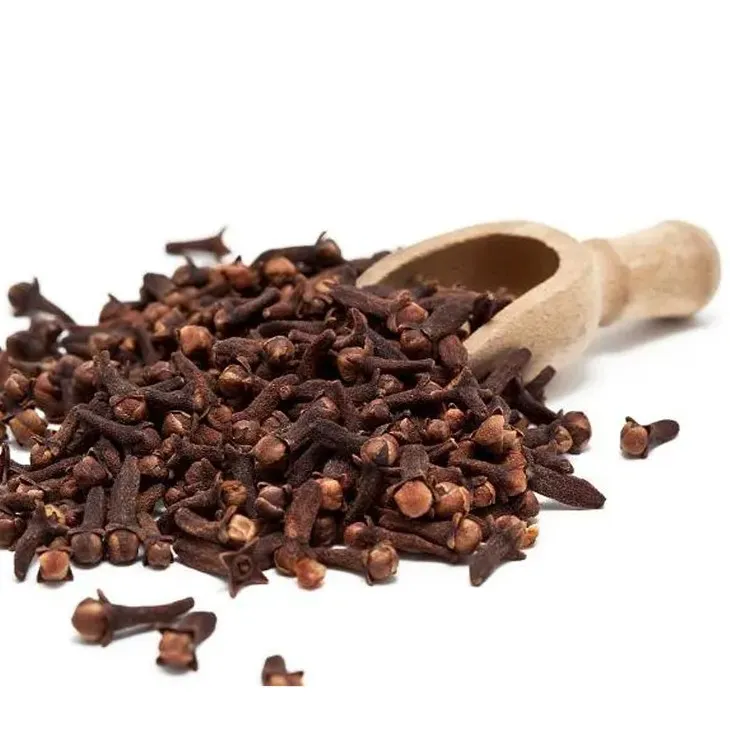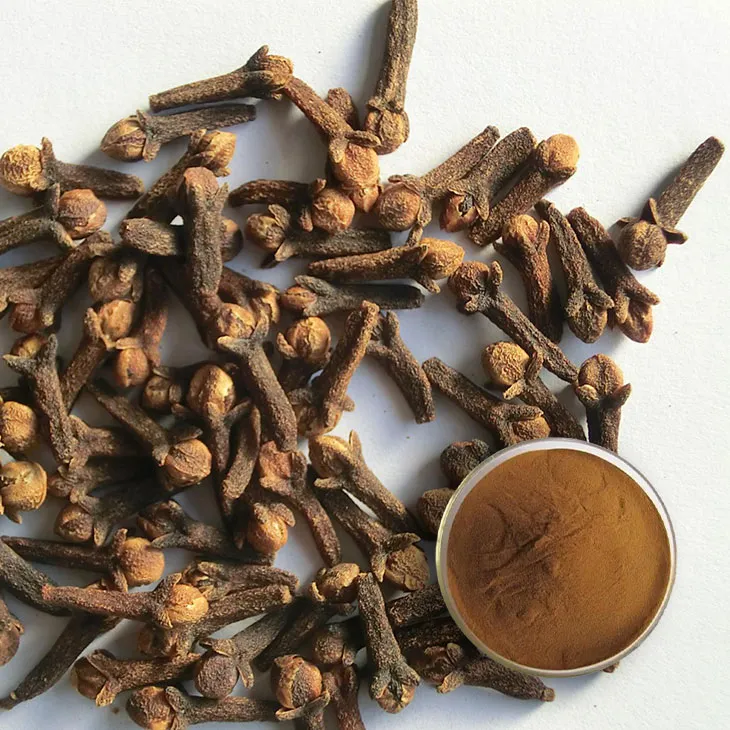- 0086-571-85302990
- sales@greenskybio.com
Expert Tips for Effective Wholesale Clove Powder Purchasing.
2024-12-12

Introduction
Wholesale purchasing of Clove Powder can be a lucrative business venture, but it also comes with its own set of challenges. To ensure a successful procurement process, it is essential to consider various factors such as quality assessment, finding reliable suppliers, and cost - control. This article will provide in - depth insights into these aspects, equipping you with the knowledge needed to make smart buying decisions.

Quality Assessment
1. Appearance
- The color of high - quality Clove Powder is typically a light to medium - brown. If the powder has a very pale or overly dark color, it could be an indication of poor quality. For example, a very pale powder might suggest that the cloves were over - processed or of inferior origin.
- Texture also matters. Good Clove Powder should be fine and uniform in texture. Clumps or gritty particles can be a sign of improper grinding or contamination.
- The aroma of clove powder is one of its most distinctive features. High - quality clove powder should have a strong, sweet, and spicy smell. If the powder has a faint or off - putting odor, it may be a sign of spoilage or adulteration. For instance, a musty smell could indicate that the cloves were stored in improper conditions before being ground into powder.
- When assessing the aroma, it is advisable to use a clean spoon or utensil to scoop a small amount of the powder and sniff it closely. This helps in getting a more accurate sense of the smell.
- Although it may not be practical to taste large quantities during the purchasing process, a small taste test can provide valuable insights. High - quality clove powder should have a warm, spicy, and slightly sweet taste. A bitter or flat taste could suggest that the cloves were of low quality or perhaps contaminated.
- It is important to note that if the powder has an extremely strong or unpleasant taste that is out of the ordinary, it could be due to the presence of additives or improper processing.
- Check for any signs of impurities in the clove powder. This could include bits of foreign matter such as dirt, stones, or other plant materials. One way to do this is to spread a small amount of the powder on a clean, white surface and examine it closely under good lighting.
- Another aspect of purity is the absence of additives or fillers. Some unethical suppliers may add substances like starch or other powders to increase the volume of the product. To ensure purity, it may be necessary to have the powder tested in a laboratory, especially if you are making large - scale purchases.

Reliable Suppliers
1. Reputation
- Research the reputation of potential suppliers. Look for reviews and testimonials from other buyers. A supplier with a long - standing positive reputation is more likely to provide high - quality clove powder. For example, you can check online business directories, industry forums, or social media platforms for feedback on suppliers.
- Ask for references from the supplier. A reliable supplier should be able to provide you with a list of satisfied customers who can vouch for their products and services.
- Check if the supplier has relevant certifications. Certifications such as ISO (International Organization for Standardization) can indicate that the supplier adheres to international quality and management standards. In the case of food products like clove powder, certifications related to food safety, such as HACCP (Hazard Analysis and Critical Control Points), are also important.
- Organic certifications are another factor to consider if you are interested in purchasing organic clove powder. These certifications ensure that the cloves were grown and processed according to organic farming standards.
- Ensure that the supplier has the production capacity to meet your wholesale needs. If you plan to make large and regular purchases, a small - scale supplier may not be able to keep up with your demands. Ask the supplier about their production facilities, the number of employees, and their average monthly or annual production volume.
- It is also important to consider whether the supplier has the ability to scale up production if your business grows in the future. A flexible supplier who can adjust their production levels accordingly can be a valuable partner.
- The location of the supplier can have an impact on various aspects of your purchase. If the supplier is located close to the source of cloves, it may be an advantage in terms of freshness and cost. For example, suppliers in clove - growing regions may have access to a more abundant and fresher supply of cloves.
- However, a more distant supplier may still be a viable option if they can offer other benefits such as better quality control, lower prices due to economies of scale, or unique product features. Consider the transportation costs and delivery times associated with different supplier locations as well.

Cost - Control
1. Price Comparison
- Shop around and compare prices from different suppliers. This can be done by requesting quotes from multiple suppliers and analyzing the cost breakdown. Be aware that the lowest price does not always mean the best deal. Consider the quality of the clove powder in relation to the price.
- Look for any hidden costs such as shipping fees, taxes, or handling charges. Some suppliers may offer a low product price but then add on significant additional costs, which can make the overall purchase more expensive.
- Negotiate volume discounts with your suppliers. If you are making a large - scale wholesale purchase, you should be able to get a lower price per unit. For example, suppliers may offer a percentage - based discount for orders above a certain quantity.
- However, make sure that the quality of the product is not compromised in exchange for the volume discount. It is important to have clear agreements in writing regarding the quality and quantity of the clove powder when negotiating volume discounts.
- Consider entering into long - term contracts with your suppliers. Long - term contracts can often result in more favorable pricing as they provide suppliers with a stable source of business. In return, you can benefit from consistent supply and potentially lower prices.
- Before signing a long - term contract, carefully review the terms and conditions. Ensure that there are provisions for quality control, price adjustments (if necessary), and termination of the contract in case of unforeseen circumstances.
- Stay informed about market trends in the clove powder industry. Factors such as changes in supply and demand, weather conditions in clove - growing regions, and international trade policies can all affect the price of clove powder. By keeping an eye on these trends, you can time your purchases more effectively to take advantage of lower prices.
- For example, if there is an expected bumper crop of cloves in a major growing region, it may be a good time to wait and purchase clove powder at a potentially lower price once the new crop is harvested and enters the market.
Conclusion
Effective wholesale clove powder purchasing requires a comprehensive approach that takes into account quality assessment, reliable suppliers, and cost - control. By carefully evaluating these factors and implementing the expert tips provided in this article, you can make informed and smart buying decisions. This will not only ensure that you obtain high - quality clove powder but also help you to optimize your costs and build a successful business in the wholesale clove powder market.
FAQ:
Q1: How can one assess the quality of wholesale clove powder?
When assessing the quality of wholesale clove powder, several aspects need to be considered. Firstly, the aroma should be strong and characteristic of cloves, which indicates freshness and potency. Secondly, the color should be a uniform brownish - tan. Any signs of discoloration, such as patches of white or gray, may suggest spoilage or poor processing. Additionally, the texture should be fine and free - flowing. Coarse or lumpy powder might imply improper grinding or contamination. Finally, check for purity by looking for any foreign matter or impurities in the powder.
Q2: What are the characteristics of reliable suppliers for wholesale clove powder?
Reliable suppliers of wholesale clove powder typically have a good reputation in the market. They should be able to provide proper documentation, such as certificates of origin and quality control reports. A reliable supplier often has a stable source of cloves, ensuring consistent quality and supply. They also have proper storage facilities to maintain the freshness and quality of the powder. Moreover, good communication and the ability to handle large - scale orders efficiently are also characteristics of reliable suppliers.
Q3: How can cost - control be achieved in wholesale clove powder purchasing?
To achieve cost - control in wholesale clove powder purchasing, it is essential to compare prices from different suppliers. However, do not solely base the decision on price; also consider the quality. Buying in larger quantities may often lead to lower per - unit costs, but make sure that the inventory can be managed effectively to avoid waste. Another way is to look for suppliers during off - peak seasons when prices may be more favorable. Additionally, establishing long - term relationships with suppliers may result in better pricing and terms.
Q4: Are there any specific regulations to be aware of when purchasing wholesale clove powder?
Yes, there are regulations to be aware of. In many regions, food safety regulations apply to clove powder as it is a food ingredient. These regulations may cover aspects such as maximum allowable levels of contaminants, proper labeling requirements, and compliance with good manufacturing practices. Import - export regulations also need to be considered if the clove powder is sourced from or sold to other countries. It is crucial to ensure that the supplier adheres to all relevant regulations to avoid legal issues.
Q5: How can one ensure the freshness of wholesale clove powder?
To ensure the freshness of wholesale clove powder, start by checking the production date and the expiration date. The closer the production date is to the purchase date, the fresher the powder is likely to be. Also, ensure that the supplier has proper storage conditions, such as cool, dry, and dark storage areas. If possible, request a sample before making a large - scale purchase to test the aroma and flavor, which are good indicators of freshness.
Related literature
- Title: Quality Standards for Spices: Clove Powder as a Case Study"
- Title: "Sourcing and Procurement of Spices in the Global Market: Focus on Clove Powder"
- Title: "Best Practices for Wholesale Spice Purchasing: Insights from the Clove Powder Industry"
- ▶ Hesperidin
- ▶ citrus bioflavonoids
- ▶ plant extract
- ▶ lycopene
- ▶ Diosmin
- ▶ Grape seed extract
- ▶ Sea buckthorn Juice Powder
- ▶ Beetroot powder
- ▶ Hops Extract
- ▶ Artichoke Extract
- ▶ Reishi mushroom extract
- ▶ Astaxanthin
- ▶ Green Tea Extract
- ▶ Curcumin Extract
- ▶ Horse Chestnut Extract
- ▶ Other Problems
- ▶ Boswellia Serrata Extract
- ▶ Resveratrol Extract
- ▶ Marigold Extract
- ▶ Grape Leaf Extract
- ▶ blog3
- ▶ blog4
- ▶ blog5
-
Pure 85% Tomentil Extract.
2024-12-12
-
Astaxanthin
2024-12-12
-
Scutellaria Extract
2024-12-12
-
Echinacea Extract
2024-12-12
-
Rosemary extract
2024-12-12
-
Bayberry Extract
2024-12-12
-
Resveratrol extract
2024-12-12
-
Purple Sweet Potato Extract
2024-12-12
-
Cassia Seed Extract
2024-12-12
-
Chia Seed Powder
2024-12-12
-
Avocado Extract Powder
2024-12-12





















